caprichos mujer burgos sgae escapadas balnearios romanico pirámides seguridad oferta de viajeUpdates from:
"Search Engine Journal" - 3 new articles
- Are PPCers a Dying Breed?
- SEO Auteur: My Interview With Dustin Woodard
- The Marketer's Guide to Utilizing Google Docs
- More Recent Articles
- Search Search Engine Journal
Are PPCers a Dying Breed?
I realized in the past few weeks that I am having a hard time keeping up with the new releases in Google AdWords. They are innovating faster than I can test the new features. I love it. But I also start to question, is this all going to be the end of PPC managers? Are Google, Yahoo, and Bing innovating so much that the PPC role will diminish?
Think about it. No, I am not giving my thoughts just yet, you have to wait for those. :P
First Point: Google and Yahoo Assisted Setup
Google offers new advertisers help in getting their account going for free. They are only testing it in the US and Canada right now but I can see how this would be an awesome service for people worldwide once Google has the staff to assist different languages. In fact, I used something like this when we built an account for a large news agency in December. Due to the size of the spend, Google not only helped get things set up, I had a dedicated team for my account for a few months longer than the account was open. Very nice to have around.
Yahoo offers assisted setup but for account of a certain size and they charge a fee, or so says their Q&A. The difference here is that they are not assisting setup, Yahoo is setting up the accounts. Keyword research, organization and everything included. This service is a little up in the air it seems right now, as two parts of their site are in disagreement. One states that the minimum monthly spend is $1k, and their landing page states $5k. Perhaps there is no fee for accounts over $5k per month? Would love clarification from Yahoo if possible.
From FAQs:
"With Assisted Set-Up, Yahoo! Search Marketing can help create a Sponsored Search campaign for you customized to your business goals and budget. We will help choose relevant keywords, write ads and suggest maximum bid amounts that work within your budget. You can expect to receive your proposed campaign within 2 to 5 business days, and we will contact you to discuss it in detail. This is a one-time set-up service to provide you with a strong foundation from which to manage your account and from which to model future campaigns. There is a fee of $199 associated with this service, and a minimum budget of $1,000/month to qualify.
To get started with assisted setup, call (866) 310-6837. Our hours of operation are Mon-Fri 6am-6pm (PT)."
From Landing Page:
I am unaware of a AdCenter assisted setup, but with the merging of Yahoo and Microsoft (Bing, Live, AdCenter, whatever), I can see this being picked up soon over there.
Second Point: Tools for Competitive Analysis
The Opportunities section of AdWords now includes an "analyze competition" section (see below). This is going to be just the tip of the iceberg. Google nor AdCenter will ever allow advertisers to see into someone else's campaign (long gone are the days of seeing someone else's bid and position, exactly), but this section of PPC platforms can only grow. As PPC people, we know where to get some of this data, make it into a nice report and make decisions from it, but Google is starting to do that as well. Clients are getting recommendations from Google, who hold more data than we could ever dream of having access to.
Third Point: Automatic bidding
The final point is in the automatic bidding tools that are popping up all over the place. Conversion Optimizer has been around since 2007, but now Google allows target CPA bidding as well. Advertisers on the content network can bid based on demographic. And now day parting and geographic bidding is more focused than ever. With the right settings, the time between required optimization for smaller accounts is getting longer.
So Should PPC People Start Packing?
No. Of course not. As I have always said, automation HELPS but it doesn't run an account. A Google Account Rep isn't the best manager either, sorry guys. But most of them have less experience than the greenback fresh on the auto lot (I once taught a Ford salesman the difference in Mustang models). They are getting better, but just like some of the bad agencies out there, the "research" they do are automatic lists from a computer. Any real search engine marketer can take those lists and save a client thousands by reviewing them for validity. Not all of those words are relevant after all.
For the PPC Managers out there, a few tips to ensure your professional survival.
- Don't Just Do PPC – This goes for everyone in Search Engine Marketing, no one part is more important than the others. You need to know and understand social and organic, as well as email marketing and others. The more well rounded you are, the better you will be able to see the trends of the future. Alerting clients to changes across the board is a competitive differentiator. Go that next step for them.
- Focus on Relevance – We can pull lists just like a computer, and slower. Show your clients what they are paying for by giving them recommendations from the data you pull. Think outside the box and give them reasons for the decisions you make. The trends you see could impact their business elsewhere. If you add value, I guarantee they will keep you around.
- Market Reflective Pricing – Remember when we charged thousands for setup? Yeah, guess what, that is free now. And I guarantee that clients will start picking that up. Instead, think outside the box. Offer something else that will give them value they can't get elsewhere. What is that? That's up to you, but I am sure you catch my drift.
Just Breathe.
Things are changing in the PPC space everyday. It's time to earn our money for being the ones that are paid for keeping campaigns relevant and at a lower cost than if the client did it alone or with free help. Time to change the marketing we use to sell services. Are you changing with the market?
Check out the SEO Tools guide at Search Engine Journal.
Are PPCers a Dying Breed?
SEO Auteur: My Interview With Dustin Woodard
I first became aware of Dustin when he dropped my name in a post (which is still a very effective way to get someone's attention). I ended up meeting him at the first SMX Advanced networking function and we've been friends ever since. We've called upon Dustin to speak at multiple SearchFest events in Portland and his search marketing insights, offered both in person and online, mix keen intuition with real-world business awareness.

1. Please give me your background and tell us what you do for a living.
I'm a veteran in-house SEO who finally went out-house. By "out-house," I mean I now work out of my house as a Seattle-based SEO consultant. Like many SEOs, I focus on other web topics like domaining, social media, usability and analytics. Unlike many SEOs, I also dabble in filmmaking.
2. We've both been in SEO for roughly a decade. How has SEO changed /evolved over the last 10 years?
In many ways it has changed tremendously, in others it hasn't changed at all. In the early days SEO was hardly an agreed upon term and even when it gained industry-wide acceptance, most people, even web professionals, didn't know what it was or how it worked.
SEO was considered magical and often mythical. Despite the plethora of "Dustin work your magic" requests and successes, it was often difficult to get executive buy-in on SEO. Often the power of search would fall into the shadow of the latest piece of technology or eye-candy. One time I had to put my job on the line to keep the company from switching to an all-flash website because a self-declared web visionary tried to convince our company that "no one uses search engines to find websites."
Even after SEO became widely accepted, many "experts" have claimed that SEO is dead. With the recent social media movement a number of marketers &media personalities are preaching this once again. What I think they don't realize is that even if search engines were to disappear (which will never happen), SEO professionals would still thrive. In truth, most SEOs are really web traffic optimizers and dominate more than just search. The most successful Digg, StumbleUpon, Twitter, and Facebook campaigns often have an "SEO" behind them.
3. Many in our industry (such as yourself) have transitioned from corporate jobs to home-based consultants. How has that transition worked for you?
The corporate atmosphere certainly comes with the benefits of stable income, social interaction, and the opportunity to be a shining star within the organization. The downside is red tape, politics, and working with people who may not get it.
Taking the plunge to self-employed, especially when you are a father of two with a large mortgage to pay, can be scary. There's nothing steady about it and the future is always uncertain. I've had periods where I had little work and others, like a couple days ago, where I worked 24 straight hours. There's a tremendous amount of flexibility working for yourself, which is both a blessing and a curse. I'm a person who likes try many things so I have to watch what I'm spending my time on closely. For example, I'm experimenting with trading some of my time for equity to help out a couple startups in the Seattle-area.
I'm getting closer to having a set number of steady clients and look forward to the time when I have to decide if I want to run an agency with other employees or if I want to stick to being a one-man show. I also make 3-6 times what I made an hour as an in-house SEO and my skills can benefit a number of companies, rather than just one.
4. How do you differentiate your services from prospective clients that might be considering you versus a full-service agency?
My first couple contracts surprised me. I was up against what I'd consider the top agencies in the industry and beat them out. I think what makes me attractive is my decade of working in-house for web companies. Audits and recommendations are one thing, but knowing how to implement and continually grow a company's search traffic when all the basic &intermediate SEO tactics have been covered is what really sets me apart.
It may be a mistake, but I've decided to focus purely on SEO and social media. I've always been a firm believer in organic search &word-of-mouth. During my Allrecipes.com days, we never spent a penny on advertising. Paid search, affiliate marketing, and banner advertising certainly have their place, but I think that full service agencies that offer those alongside SEO may be creating an environment where there is conflict of interest.
5. User-generated content is the holy grail for generating long-term search traffic. What's are the best ways for generating it, harnessing it for maximum utility, and policing it so that it conforms within the high standards of the brand it represents?
Strangely enough, UGC tends to get overlooked by many SEOs. I think it is partly because people have trouble fathoming how large the long-tail of search is. There are some crafty ways to attack the long-tail from a programmatic standpoint, but harnessing user-generated content is usually more powerful and more effective.
When I worked at Wetpaint, I was in charge of SEO for 1.5 million user-generated sites. Our UGC portions focused mostly on wikis, forums, news coverage, but I've worked with and for other companies that used reviews, Q&A, and many custom-built pages or tools that allowed site visitors to contribute to the site. You'd be surprised how many of the most trafficked sites on the web focus primarily on UGC.
Adding UGC to site that didn't have it before can be a daunting task. Usually a key ingredient is to already have a sizable audience to work with—the more passionate the better. Building UGC components certainly comes with technologic challenges, but I think the greatest challenge is getting company-wide buy in. Once you get past that hurdle, the key is to know your audience well enough to know what would encourage them to contribute. Some people are motivated by ego, others want to promote their business, and some just want to help create authoritative information on a topic they are passionate about.
Most successful UGC launches that I've been a part of involved a good amount of content seeding up front as nobody knows what to do when they look at an empty slate. It's important to inspire &interact in the beginning stages. Later on, the community can police itself. Anyone who has ever edited a Wikipedia page realizes how fast the community can police content.
From an SEO standpoint, there are many things to look out for with UGC, including duplicate content, spam prevention, overwritten or deleted content, improper categorization, plagiarism, brand attacks, and even spammy SEOs who are trying to get backlinks.
There's actually more to UGC than I can possibly cover in this interview. I'm actually launching a UGC SEO blog next week to help shed more light on this topic.
6. How can social media be best leveraged to help a company's search effort?
There's no secret that social media can play a large part in a company's search efforts. Social media is where the conversation happens and having a large social media presence can certainly draw attention, and more importantly, links to your site. I really enjoy helping companies grow their Twitter accounts to the point where they become the largest influencers for their niche.
Making the homepage for sites like Digg and Reddit is a great way to instantly attract thousands of links, but it requires the creativity and connections most companies don't have. Even without connections, it's not hard to make waves with smaller social sites within any industry.
Traditional linkbuilding is not usually a fun task, but creating link bait and spreading it via social media can be very fun and very productive from an SEO standpoint.
7. What are the top 3 things SEO's should understand about Domainers and what are the top 3 things Domainers should understand about SEO's?
Fun question. Many SEOs don't realize how much money domainers make even if their domains aren't indexed by Google. There's a surprising amount of traffic directly typed into the browser and many domainers create much more sophisticated pages then the old parked pages many of us have seen in the past. In the search industry, pretty much anyone has a shot at being one of the best – it's anybody's game. The domain industry, however, is faced with a limited quantity of top notch domains and they are typically owned by a small number big players who often buy/sell/and trade domains amongst each other. For the domains that don't monetize well from PPC ads, the big payday might be way down the road. It's like owning a piece of property that sits vacant until the right company comes along willing to build upon it.
Many domainers don't realize how much traffic search drives and how difficult it can be to rank for certain keywords. More and more domainers are starting to build out real properties, but often fail to look past one or two keywords because that is how domains work, but any SEO will tell you there's a lot of traffic opportunity outside the top keywords and multi-word queries are much easier to win. The greatest challenge for a domainer who might be working with an SEO is to have patience. SEO results rarely happen fast, but when they do happen, they last for a very long time.
Check out the SEO Tools guide at Search Engine Journal.
SEO Auteur: My Interview With Dustin Woodard

The Marketer's Guide to Utilizing Google Docs
Despite all the new and more or less established collaboration and sharing tools, the one I use most of all is Google Docs. Yes, it is still buggy but I have found it to be the fastest and the most reliable. Besides, on the plus side I never need to login to it (as I am always logged in to my Google account) and it has exactly the set of features I need (no extra ones and almost no missing ones).
If you are using Google Docs regularly (or plan to start), here's my personal take on it – feel free to share yours!
I use Google Docs for:
1. Collaboration
From within Google Docs you can share the documents with anyone via email: you can let the new members to either view or edit the document. I've been using the feature in two cases:
- When I need my co-workers to help me collect the data and complete the table (with statuses, resources and links). If your team is also using Google Apps, the feature becomes invaluable.
- When I want to let my client watch the (link building) process. In this case I just go to the document daily while working on the project and update the spreadsheet on the fly. The client can login any time, click through the sheets and see where we are right now. (For most clients this works wonders and can even substitute my regular reporting).
With the updated interface, sharing has got even easier. The sharing options include:
- Share a separate document with anyone from the document page (click the status link right next to the document name or navigate Share -> Sharing settings)
- Group the document in folders and share entire folders from your Docs dashboard (Warning: we have found the feature buggy at times, but they seem to be working to fix it).
The collaboration options include:
- Work on the same document simultaneously;
- Email editors and viewers from "Share" menu;
- Chat with each other right from the document view:
2. Keeping Notes (Bookmarking)
The ability to access the documents any time is awesome as well as the ability to use the Excel-like "cell power" to group and organize the information the way you like – if you are an Excel freak like me, this is priceless!
If you are using Google Docs to organize and store the data you come across on the web, here are also some FireFox-based tools to make your life easier:
1. Open IT Online tool adds a new option to your download screen that lets you open the file using Google Docs (or other similar service) instead of downloading it locally:
2. Google Docs Viewer: Use Google Docs to quickly view DOC, DOCX, PDF, PPT and TIFF files online, i.e. a right click on a hyperlink and another for "Open".
i
The related tool for Google Chrome users: Ultimate Google Docs Viewer
3. Google Docs Anywhere is an experimental addon that lets you:
- Access Google Docs easily (Click GoogleDocsAnywhere icon in status bar)
- Upload any web file to Google Docs with one click (Right click the doc link and select Upload to Google Docs from context menu):
3. Easy Data Exchange
Google Docs are also fun to use for data sharing and exchange.
- You can easily "publish" any document for everyone to see it;
- You can use "share with everyone" to let anyone with Google Docs access see it.
- You can also embed any document to any web page (using iframe) and unlike any other non-Google service, this one is going to be working most of the time.
Now, if you use (or plan to use) Google Docs often, here are a few tools that may help you:
Google Document List View allows you to have list of your google document from your side bar. You can manage and open files inside your browser. The tool does not support folder and use google client login or oauth to access google docs.
From your browser sidebar you can:
- View Google Docs items (broken in the usual categories: "Shared with me", "Owned by me", "Starred", etc);
- Create new documents and upload content to Google docs:
The related tool for Google Chrome users: Google Docs allowing to:
- View your recent documents
- Search all your documents
- Filter your documents
- Create New Documents
- Open the selected document with just one click.
Do you use Google docs? Please share your tips and tricks!
Check out the SEO Tools guide at Search Engine Journal.
The Marketer's Guide to Utilizing Google Docs
More Recent Articles

Click here to safely unsubscribe now from "Search Engine Journal" or change your subscription or subscribe
"Gizmos" - 4 new articles
- Phecda P7. Un nuevo tablet con Android para China
- El Nexus Two podría no desarrollarse
- Lenovo anuncia nuevo móvil, el P90W
- Playview, ¿el tablet de Sony PlayStation?
- More Recent Articles
- Search Gizmos
Phecda P7. Un nuevo tablet con Android para China

El Phecda P7 es uno de los tablets que pueden disfrutar los ciudadanos de la China, mientras que el resto de mortales, tanto en los EEUU como en Europa y el resto de países del planeta no somos capaces de encontrar un tablet con Google Android que acabe de ser lo que queremos que sea.
En los EEUU ya se pueden encontrar unos cuantos tablet, pero en China cada dos por tres aparece uno nuevo. En este caso se trata de uno con pantalla táctil de 7″ y una resolución de 800 x 480 pixel, con un procesador ARM a 650 MHz y con Google Android en su versión 2.1 haciendo de cerebro de la máquina.
En cuanto a capacidad de almacenamiento dispone de 4 GB de memoria flash y ranura para tarjetas SD. Tiene 2 puertos USB y salida HDMI de video además de 256 MB de memoria RAM. Uno de los puntos débiles de estos equipos es siempre la batería, que en este caso alcanza la capacidad de 1300 mAh, tanto como para poder trabajar hasta durante 4 horas con el equipo.
Ya sabéis, si os queda China de paso en vuestro camino tendréis la oportunidad de poder elegir alguno de estos Tablet PC que además de incluir las últimas tecnologías y sistemas operativos también suelen tener un precio irresistible. El Phecda P7 aparece en el mercado por unos 175 EUR al cambio, no podrás decir que no, seguro.
En Gizmos: Playview, ¿el tablet de Sony PlayStation? - LG presenta la línea de smartphones Optimus
Vía | Liliputing
Related posts:
- A escena el Firstview PC607V, un nuevo tablet de China
- Otro tablet económico en China, ésta vez de Eken
- Más clones del iPad llegan a las tiendas
- Mastone Lifespad 3G, otro tablet
- Dell anuncia oficialmente el tablet Streak
Copyright © 2008
This feed is for personal, non-commercial use only.
The use of this feed on other websites breaches copyright. If this content is not in your news reader, it makes the page you are viewing an infringement of the copyright. (Digital Fingerprint:
Entrada Original: )
El Nexus Two podría no desarrollarse
Tras el poco impacto que tuvo en el mercado el Nexus One de Google, lo cierto es que esperábamos un segundo modelo de calidad superior. Pero parece ser que podría no llegar a desarrollarse.
Eric Schmidt, de Google, menciona que la compañía no está planeando volver a meterse en el mercado de los teléfonos, por muchos rumores que hayamos escuchado sobre el Nexus Two.
Teniendo en cuenta que el sistema operativo Android se está usando en teléfonos realmente potentes, como el HTC EVO 4G, la duda sobre si el Nexus Two existirá algún día crece por momentos.
En relación a esto, Eric Schmidt comenta: "La idea hace un año y media era hacer el Nexus One e intentar llevar hacia adelante el mercado de la telefonía móvil. Y claramente lo hizo. Fue tan exitoso que no haremos un segundo. Nosotros podemos ver esto como algo positivo, pero la gente nos ha criticado mucho por ello. Yo llamé a la junta y les dije: "Vale, ha funcionado. Felicidades, pero nos paramos aquí".
En Gizmos: Google Nexus One y la grabación en 720p - El Nexus One de Google no se venderá online
Related posts:
- Posible presentación del Nexus One el 5 de Enero
- Google Nexus One y la grabación en 720p
- El Nexus One europeo sí es multitáctil
- El Nexus One de Google no se venderá online
- Motorola fabricará el próximo Google Phone
Copyright © 2008
This feed is for personal, non-commercial use only.
The use of this feed on other websites breaches copyright. If this content is not in your news reader, it makes the page you are viewing an infringement of the copyright. (Digital Fingerprint:
Entrada Original: )

Lenovo anuncia nuevo móvil, el P90W
La fabricante Lenovo acaba de presentar un nuevo teléfono móvil conocido como P90W. Se trata de un terminal con tapa de diseño poco usual, dado que se puede girar tanto de forma vertical como horizontal.
De ésta manera podemos usarlo como keypad para marcar los números, o en forma de teclado QWERTY para introducir texto.
El teléfono cuenta con una pantalla de 3 pulgadas capaz de ofrecer una resolución de 240 x 400 píxeles (WQVGA). Dispone de cámara de 3.2 megapíxeles, slot para tarjetas de memoria microSD, y conexión Bluetooth. Además, está dotado de sistema dual SIM que funciona con dos operadores distintos de manera simultánea, e incluye soporte GSM y UMTS.
Lenovo no ha anunciado en qué mercado distribuirá el móvil, pero posiblemente lo veamos primero en China y después en otros países.
En Gizmos: Lenovo LePhone, más imágenes del nuevo Android chino - Lenovo LePhone, otro fabricante de PCs prepara un móvil con Android
Related posts:
- Lenovo Poison, un móvil de pantalla transparente
- Lenovo LePhone, más imágenes del nuevo Android chino
- Lenovo se une al carro de los ebooks con Tianji
- Lenovo anuncia el netbook IdeaPad S10-3s
- Lenovo ThinkPad T61p, portátil certificado para Linux
Copyright © 2008
This feed is for personal, non-commercial use only.
The use of this feed on other websites breaches copyright. If this content is not in your news reader, it makes the page you are viewing an infringement of the copyright. (Digital Fingerprint:
Entrada Original: )
Playview, ¿el tablet de Sony PlayStation?
A inicios de éste año 2010 Sony registró en los Estados Unidos, manteniendo el secretismo, una nueva patente llamada Playview. En su momento no se habló mucho del tema, y tampoco se le dio trascendencia, especialmente porque el concepto que planteaba, similar al de un tablet, todavía no estaba demasiado extendido.
Pero ahora que el iPad está arrasando se recupera el nombre del Playview, sobre todo debido a las declaraciones de Shuhei Yoshida, jefe de Sony Worldwide Studios.
Yoshida ha revelado y confirmado que Sony está trabajando en un nuevo producto de hardware correspondiente a la gama PlayStation. Podría ser una consola portátil, una consola de sobremesa, un tablet, o cualquier otra cosa, pero Playview suena con fuerza.
En el registro de la patente Sony definió éste dispositivo como un aparato electrónico dirigido a reproducir archivos de sonido, imagen y texto, y a descargar contenidos desde la red. Utilizará discos ópticos para juegos y posiblemente películas, por lo que sería un producto realmente curioso.
De momento, como de costumbre, Sony no se ha pronunciado al respecto.
En Gizmos: Sony podría preparar nuevos modelos de PlayStation 3 - PlayStation 4: Consola de diseño
Related posts:
- Phecda P7. Un nuevo tablet con Android para China
- El 3D y PlayStation Move, nuevas armas de Sony
- Sony presenta el PlayStation Move, un nuevo controlador de PS3
- Sony podría preparar nuevos modelos de PlayStation 3
- Sony PlayStation 3 de 160 GB
Copyright © 2008
This feed is for personal, non-commercial use only.
The use of this feed on other websites breaches copyright. If this content is not in your news reader, it makes the page you are viewing an infringement of the copyright. (Digital Fingerprint:
Entrada Original: )
More Recent Articles

Click here to safely unsubscribe now from "Gizmos" or change your subscription or subscribe
Unsubscribe from all current and future newsletters powered by FeedBlitz
Your requested content delivery powered by FeedBlitz, LLC, 9 Thoreau Way, Sudbury, MA 01776, USA. +1.978.776.9498
jueves, 8 de julio de 2010
7 new articles
Suscribirse a:
Enviar comentarios (Atom)
Seguidores
Archivo del blog
-
▼
2010
(127)
- ► septiembre (7)
-
▼
julio
(23)
- 6 new articles
- 9 new articles
- 6 new articles
- 9 new articles
- 4 new articles
- 5 new articles
- 12 new articles
- 4 new articles
- 3 new articles
- 5 new articles
- 6 new articles
- 8 new articles
- 9 new articles
- 8 new articles
- 3 new articles
- 3 new articles
- 7 new articles
- 7 new articles
- 4 new articles
- 5 new articles
- 7 new articles
- 8 new articles
- 8 new articles

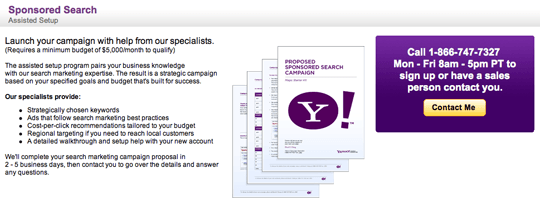


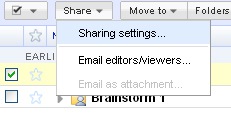
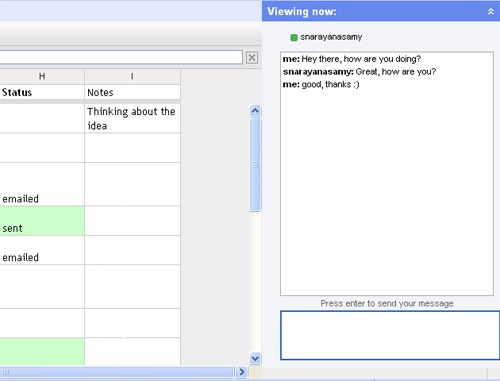
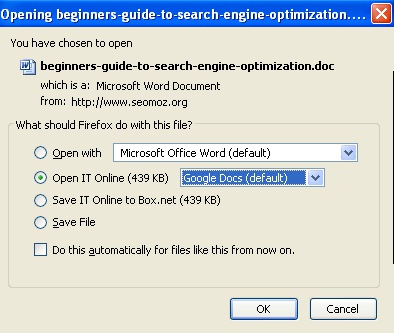

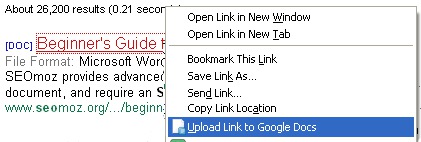

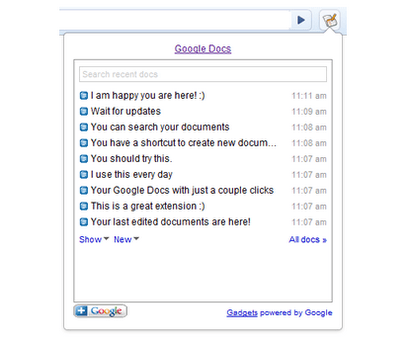




No hay comentarios:
Publicar un comentario